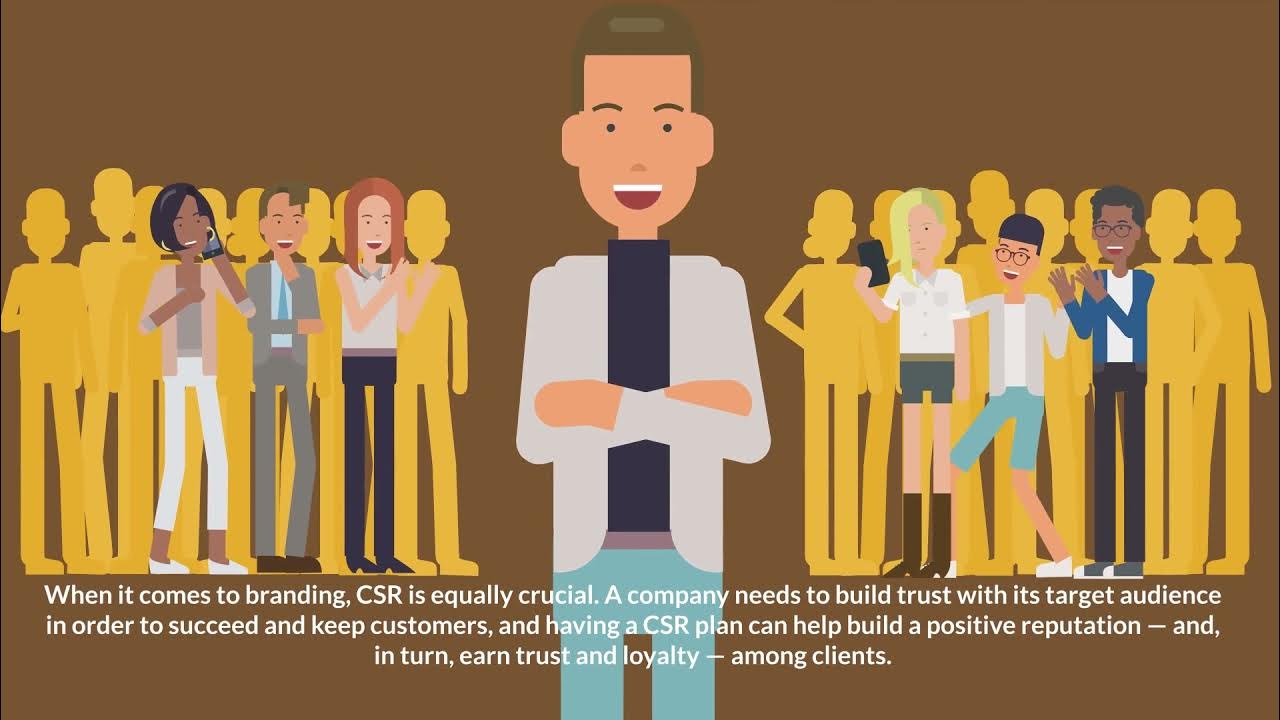Leading Customer Loyalty Overview
Summary
TLDRSandy Rogers from Franklin Covey emphasizes the importance of frontline employees in fostering customer loyalty, which is largely driven by their behavior. The company promotes a bottom-up, inside-out approach to customer service, focusing on internalizing empathy, responsibility, and generosity. Frontline workers are encouraged to connect with customers, listen actively to understand their needs, take responsibility for fulfilling those needs, and be generous in sharing insights to improve service. These practices build genuine loyalty.
Takeaways
- 🔑 More than 70% of customer loyalty is influenced by the behavior of frontline employees.
- 🌟 Franklin Covey advocates a bottom-up approach to improving customer experience, emphasizing the role of frontline staff.
- 💡 The inside-out approach focuses on changing behavior from within, starting with the heart, to ensure authenticity in customer interactions.
- 🤝 Empathy is the first principle for frontline workers, involving making warm connections and actively listening to understand customer needs.
- 👂 Responsible frontline employees discover the real job to be done, going beyond just fulfilling customer requests.
- 🔄 These employees also follow up with customers regularly to ensure satisfaction and improve service.
- 🎁 Generosity is the third principle, where team members proactively share insights and ideas to enhance customer service.
- 💡 The script suggests that frontline workers can enhance customer relationships by showing empathy, taking responsibility for customer needs, and treating them generously.
- 🎶 The overall message is that customer loyalty is built on the foundation of empathy, responsibility, and generosity displayed by frontline employees.
Q & A
What is Sandy Rogers' role at Franklin Covey?
-Sandy Rogers is the loyalty practice leader for Franklin Covey.
What percentage of customer loyalty is attributed to the behavior of frontline employees?
-More than 70% of what produces customer loyalty is based on the behavior of frontline employees.
How does Franklin Covey's approach to improving customer experience differ from traditional methods?
-Franklin Covey advocates a bottom-up approach powered by the people on the frontline, rather than top-down prescriptions.
What does the term 'inside-out' mean in the context of Franklin Covey's approach?
-The 'inside-out' approach refers to the idea that behaviors that produce loyalty must come from within an individual, from the heart.
What are the three essential principles that Franklin Covey suggests for creating customer loyalty?
-The three essential principles are empathy, responsibility, and generosity.
How do empathic frontline employees differ in their interactions with customers?
-Empathic frontline employees make a warm human connection and are great listeners, genuinely listening to understand the customer's needs.
What does it mean for frontline employees to be responsible in their approach to customer service?
-Responsible frontline employees discover the real job to be done by going beyond what customers ask for, following up regularly to ensure satisfaction, and seeking to serve customers better.
How does generosity manifest in the actions of frontline employees?
-Generous team members actively seek and share insights to improve service, give feedback, and come up with new ideas to surprise and delight customers.
Why is it important for customer service techniques to come from the heart according to Franklin Covey?
-If techniques like smiling and greeting customers do not come from the heart, they can come across as counterfeit or phony, which can negatively impact customer loyalty.
What is the natural consequence of customers experiencing empathy, responsibility, and generosity from frontline employees?
-Customers are likely to feel more loyal to employees who exhibit these behaviors.
How can frontline workers apply the principles of empathy, responsibility, and generosity in their daily interactions?
-Frontline workers can apply these principles by making warm connections, actively listening, discovering real customer needs, following up on customer satisfaction, and constantly looking for ways to improve and surprise customers.
Outlines

Cette section est réservée aux utilisateurs payants. Améliorez votre compte pour accéder à cette section.
Améliorer maintenantMindmap

Cette section est réservée aux utilisateurs payants. Améliorez votre compte pour accéder à cette section.
Améliorer maintenantKeywords

Cette section est réservée aux utilisateurs payants. Améliorez votre compte pour accéder à cette section.
Améliorer maintenantHighlights

Cette section est réservée aux utilisateurs payants. Améliorez votre compte pour accéder à cette section.
Améliorer maintenantTranscripts

Cette section est réservée aux utilisateurs payants. Améliorez votre compte pour accéder à cette section.
Améliorer maintenantVoir Plus de Vidéos Connexes

Don't Be a Jerk to Your Barista — and Other Thoughts on Frontline Work | Adriann Negreros | TED

What is Stakeholder Theory and Why It Matters

Tujuan Luhur Organisasi - Antonius Alijoyo

How Does Corporate Social Responsibility CSR Affect Your Business

Creating organizational cultures based on values and performance | Ann Rhoades | TEDxABQ

How is the war going? — September 2024
5.0 / 5 (0 votes)
